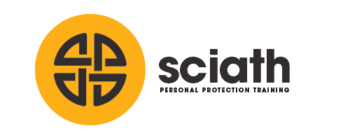
Sharper Senses, Safer Life
In today’s fast-moving and unpredictable world, self-protection isn’t just about physical strength or self-defence techniques—it begins with one crucial habit: self-awareness.
Self-awareness is the ability to recognise what’s happening within and around you at any given moment. It’s the foundation of personal safety, allowing you to detect potential threats, avoid dangerous situations, and make fast, informed decisions. In an age where distractions are constant and our attention is often elsewhere, this skill is more vital than ever.
Why Awareness is Your First Line of Defence
Most people walk through life distracted—staring at phones, lost in thought, or simply too busy to notice what’s going on around them. This makes them easy targets. Criminals don’t look for the strongest or the wealthiest; they look for the unaware.
Being self-aware means you’re harder to surprise, less likely to freeze under pressure, and more capable of identifying danger before it becomes a problem. It’s about being present—not paranoid, but alert. Noticing the person who’s been following you for the last few blocks. Realising when someone’s behaviour doesn’t match the environment. Spotting the exit when you enter a building.
Inner Awareness Keeps You in Control
Self-protection also includes emotional and psychological safety. Being aware of your emotional state helps you stay calm under pressure, recognise fear without being ruled by it, and avoid escalating situations unnecessarily. If someone confronts you, your ability to manage your reactions can prevent a bad situation from becoming worse.
By understanding your own stress triggers, anxiety patterns, and physical responses to fear, you can train yourself to respond rather than react. This awareness can keep you grounded in the middle of chaos and help you think clearly when it matters most.
Making Faster, Smarter Safety Decisions
Real-world threats rarely give you time to plan. You have to act quickly and wisely. Self-awareness sharpens your intuition and decision-making. It helps you detect subtle cues—body language, changes in tone, shifts in the environment—that may signal danger. You learn to trust your gut because you’ve trained yourself to pay attention to it.
Whether you’re walking to your car late at night, travelling alone, or navigating a crowd, the more alert and self-aware you are, the more likely you are to stay safe. It’s not about living in fear; it’s about taking control.
Building Self-Awareness for Self-Protection
Developing this skill doesn’t require special equipment or formal training. It’s a mindset—a way of living with your eyes open. Here’s how to build it:
Practise situational awareness: Make a habit of scanning your environment. Who’s near you? What are they doing? Where are the exits?
Minimise distractions in public: Avoid getting lost in your phone or headphones in unfamiliar or vulnerable areas.
Check in with your instincts: If something feels off, don’t ignore it. Your subconscious mind often picks up on warning signs before you’re fully aware of them.
Reflect on your reactions: After tense or unexpected situations, think about how you responded. What did you notice? What could you do better next time?
Conclusion
Self-awareness is more than just a personal development goal—it’s your first and most reliable tool for self-protection. In a world full of unknowns, cultivating awareness gives you the power to stay ahead of danger, make smarter choices, and walk through life with confidence. It’s not about being fearful; it’s about being prepared. When you learn to truly pay attention—to your surroundings, your instincts, and your emotions—you’re no longer an easy target. You become your own first line of defence.

